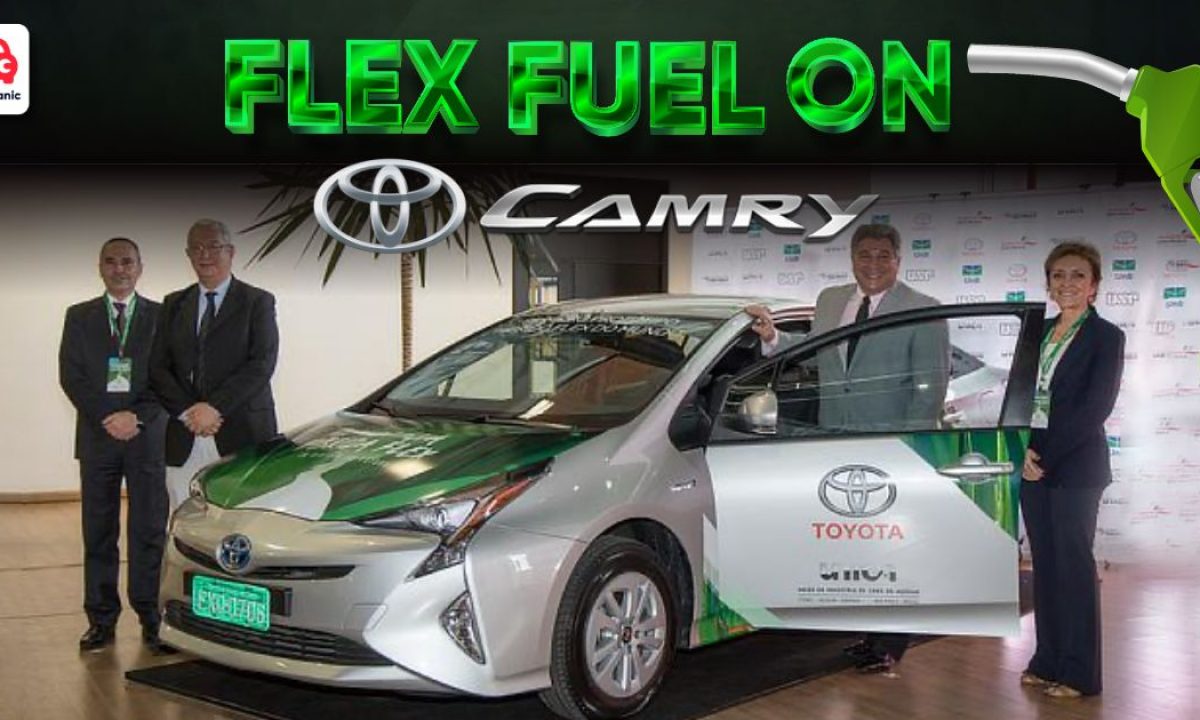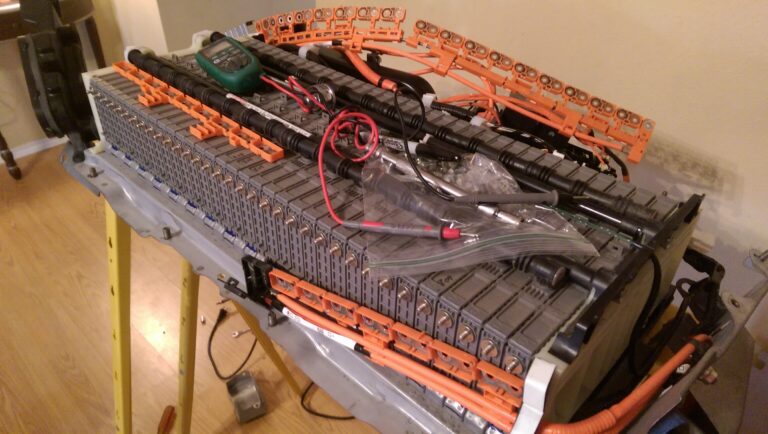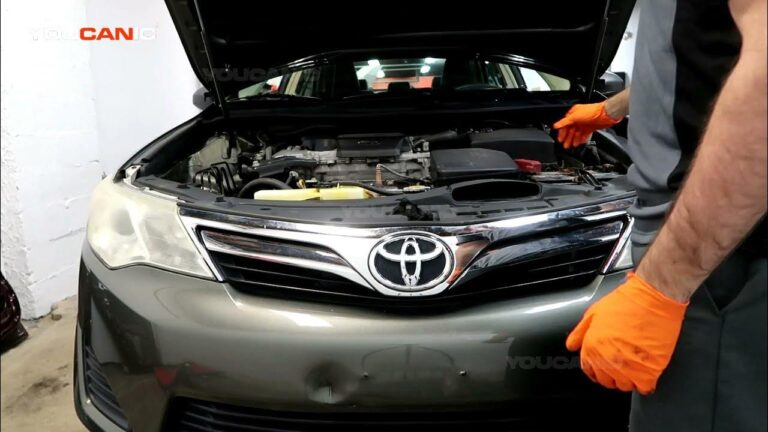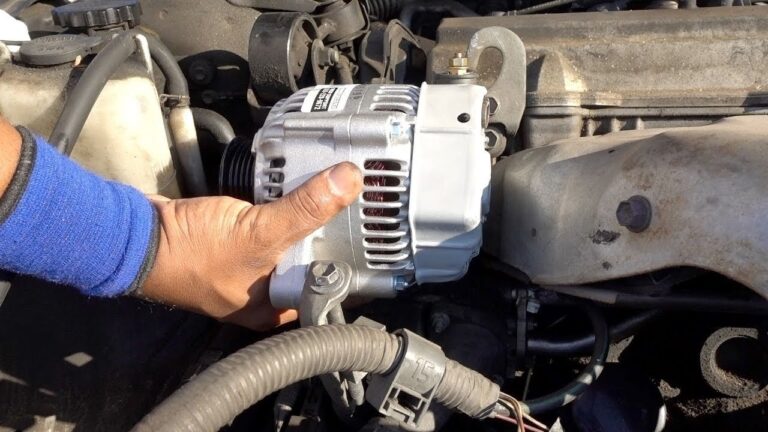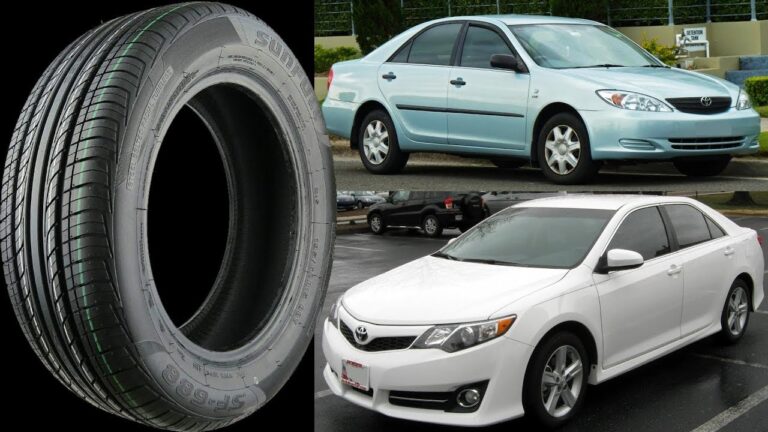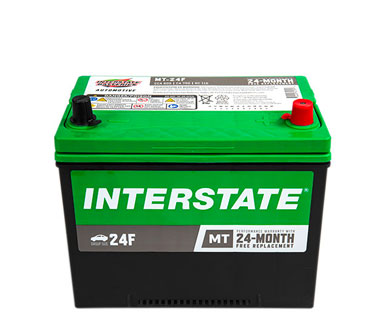Can You Put E85 in a Toyota Camry
Yes, you can put e85 fuel in a toyota camry. However, it is important to note that not all toyota camry models are specifically designed to run on e85, so it is recommended to check the vehicle’s user manual or consult a professional mechanic for compatibility.
E85, also known as flex fuel, is a blend of 85% ethanol and 15% gasoline. It is used as an alternative fuel source due to its potential environmental benefits and potential cost savings. The toyota camry is a popular mid-size sedan known for its fuel efficiency and reliability.
Whether or not your specific camry model is e85 compatible, it is always important to follow the manufacturer’s guidelines for optimum performance and safety.
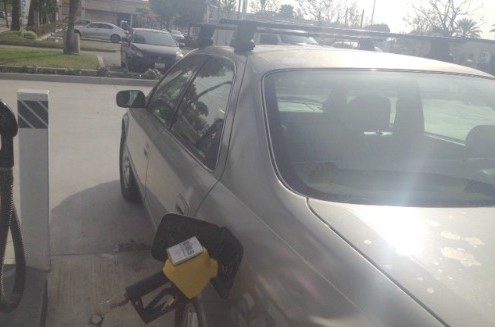
Credit: www.fuelfreedom.org
What Is E85 And Its Composition
Ethanol And Gasoline Blend
- E85 is a fuel that consists of a blend of ethanol and gasoline. The number “85” refers to the percentage of ethanol in the mixture, with the remaining 15% being gasoline.
- Ethanol, which is derived from renewable resources such as corn, sugarcane, or switchgrass, is mixed with gasoline to create e85.
- The higher proportion of ethanol in e85 provides certain advantages over regular gasoline, which we’ll explore in the next section.
Higher Octane Rating
- Ethanol content in e85 gives it a higher octane rating compared to regular gasoline. Octane rating is a measure of a fuel’s ability to resist knocking or pinging during combustion.
- The higher octane rating of e85 allows for more efficient and powerful engine performance in certain vehicles.
- It’s important to note that not all engines are designed to run on e85, so it’s crucial to check your vehicle’s compatibility before using it.
Flex-Fuel Vehicles
- Flex-fuel vehicles, also known as ffvs, are designed to run on a variety of fuel blends, including e85.
- These vehicles have specialized components that can handle the higher ethanol content in e85 without causing damage to the engine.
- Ffvs utilize advanced engine management systems that can adjust fuel injection and ignition timing based on the type of fuel being used.
- Toyota camry, like many other vehicle models, offers flex-fuel versions that can support the use of e85.
- Before filling up your toyota camry with e85, make sure to check your vehicle’s documentation or consult with a professional to confirm its compatibility.
By understanding the composition of e85, including its blend of ethanol and gasoline, the higher octane rating it provides, and the importance of using it with flex-fuel vehicles like the toyota camry, you can make informed decisions about fuel choices for your vehicle.
Remember to always consider your vehicle’s specifications and consult with experts when necessary to ensure optimal performance and longevity.
Toyota Camry Engine Compatibility
The toyota camry is a popular sedan known for its reliability and practicality. If you’re considering using e85 fuel in your toyota camry, it’s essential to understand the compatibility of different engine types and the manufacturer’s recommendations. Additionally, there are potential risks and consequences associated with using e85 fuel in a toyota camry.
In this section, we will explore these aspects in more detail.
Compatible Engine Types:
- Some toyota camry models are equipped with flex fuel vehicles (ffvs), which are designed to run on e85 fuel as well as regular gasoline. These ffv models have specific modifications that allow them to handle the higher ethanol content in e85 fuel.
- Older toyota camry models without ffv capabilities are not compatible with e85 fuel and may experience engine damage or poor performance if e85 is used.
Manufacturer Recommendations:
- Toyota recommends referring to the owner’s manual to determine if your specific toyota camry model is compatible with e85 fuel. The owner’s manual will provide detailed information and guidelines regarding fuel compatibility.
- If your toyota camry is not an ffv model, it is important to follow the manufacturer’s recommendations and use only the recommended fuel type, which is typically regular unleaded gasoline.
Potential Risks And Consequences:
- Using e85 fuel in a toyota camry that is not designed to handle ethanol blends can lead to engine damage. The engine components may not be designed to withstand the corrosive effects of ethanol, which can result in increased wear and tear.
- Incompatibility with e85 fuel can also cause poor engine performance, including reduced power output and lower fuel efficiency. This is because the engine’s fuel system and combustion process are optimized for regular gasoline.
- Using e85 fuel in a non-ffv toyota camry may also void the vehicle’s warranty. It is important to follow the manufacturer’s guidelines to maintain the warranty coverage and ensure any potential repairs or maintenance are covered.
Remember, always consult the owner’s manual and follow the manufacturer’s recommendations regarding fuel type and compatibility for your toyota camry.
Benefits And Challenges Of Using E85 In A Toyota Camry
E85 fuel, a blend of 85% ethanol and 15% gasoline, has gained popularity for its potential benefits in terms of power, performance, and environmental impact. However, there are also challenges associated with using e85 fuel in a toyota camry. Let’s explore these aspects further:
Increased Power And Performance
- E85 fuel has a higher octane rating than traditional gasoline, which can enhance the engine performance of a toyota camry.
- The higher octane level allows for increased compression and improved combustion, resulting in increased power and acceleration.
Environmental Benefits
- Ethanol, the primary component of e85, is a renewable resource produced from crops like corn and sugarcane.
- Using e85 fuel in a toyota camry can help reduce reliance on non-renewable fossil fuels and contribute to a lower carbon footprint.
Reduced Carbon Emissions
- Compared to gasoline, e85 fuel has lower carbon emissions due to its ethanol content.
- Ethanol burns cleaner than gasoline, resulting in reduced greenhouse gas emissions and less air pollution.
Potential Decrease In Fuel Economy
- Despite its benefits, e85 fuel typically has lower energy content compared to gasoline, which can lead to decreased fuel efficiency.
- As a result, a toyota camry running on e85 may experience a decrease in fuel economy, requiring more frequent refueling.
Impact On Engine Lifespan
- Due to its properties, e85 fuel can cause increased wear and tear on certain engine components.
- The higher ethanol content in e85 can lead to corrosive effects on fuel system seals and gaskets, potentially shortening the overall lifespan of the engine.
Availability And Accessibility Of E85 Fuel Stations
- One of the main challenges of using e85 in a toyota camry is the limited availability of e85 fuel stations.
- While e85 fuel stations are becoming more common, their distribution is uneven across different regions, making it important to consider the accessibility before committing to using e85.
Using e85 fuel in a toyota camry offers potential advantages in terms of power, environmental impact, and reduced carbon emissions. However, it also comes with challenges such as decreased fuel economy, potential engine lifespan impact, and limited availability. Therefore, it’s important to weigh these factors and consider the suitability of using e85 based on individual circumstances and preferences.
How To Determine If Your Toyota Camry Can Use E85
The toyota camry is a popular and dependable vehicle known for its fuel efficiency. If you’re wondering whether your toyota camry can use e85, a blend of 85% ethanol and 15% gasoline, there are a few ways to determine its compatibility.
Whether you’re hoping to use e85 for its potential cost savings or environmental benefits, here are some methods to find out if your toyota camry is e85 compatible.
Checking The Vehicle Owner’S Manual:
The owner’s manual is a valuable resource for any vehicle owner, and it can provide crucial information regarding your toyota camry’s fuel compatibility. Here’s how you can check your manual for e85 compatibility:
- Locate your toyota camry’s owner’s manual.
- Search for keywords such as “fuel,” “fuel specifications,” or “fuel compatibility.”
- Look for specific information on whether your vehicle is designed to use e85 or if it is strictly gasoline compatible.
- If your owner’s manual does not explicitly mention e85 compatibility, it’s best to assume that your toyota camry cannot use e85.
Identifying The Flex-Fuel Badge On The Car:
Many vehicles that are compatible with e85 will have a flex-fuel badge or emblem placed somewhere on the exterior of the vehicle. You can look for this badge in the following areas:
- Check the front fenders, trunk lids, or doors for a flex-fuel badge.
- Look for wording such as “flex fuel” or “e85” on the badge.
- If your toyota camry does not have a flex-fuel badge, it may not be designed to use e85.
Consulting With A Toyota Dealership Or Service Center:
If you’re unsure about your toyota camry’s compatibility with e85, consulting with a toyota dealership or service center can provide you with accurate and reliable information. Here’s how you can do so:
- Contact your nearest toyota dealership or service center.
- Inquire about e85 compatibility for your specific toyota camry model and year.
- Provide them with your vehicle identification number (vin) if requested, as it may help them determine the compatibility.
- The professionals at the dealership or service center will be able to provide you with the most accurate information regarding your vehicle’s e85 compatibility.
Online Resources And Databases For Fuel Compatibility:
In addition to the owner’s manual and consulting with professionals, you can also utilize online resources and databases to determine if your toyota camry can use e85. Here are some useful online platforms to consider:
- Visit the official website of toyota and search for your vehicle’s specifications.
- Explore online databases that provide fuel compatibility information for various car models.
- Join automotive forums or communities where fellow toyota camry owners might share their experiences or knowledge about e85 compatibility.
- Be cautious when relying solely on online resources, as the most accurate information should be cross-referenced with the owner’s manual or verified with a dealership.
Determining if your toyota camry can use e85 is important for making informed decisions about your fuel choices. By following these methods of checking the owner’s manual, identifying the flex-fuel badge, consulting with professionals, and utilizing online resources, you can gain confidence in determining your toyota camry’s compatibility with e85.
Always prioritize accuracy and safety when considering alternative fuel options for your vehicle.
Steps To Begin Using E85 In Your Toyota Camry
Gradual Transition And Fuel Mix Percentages:
- Begin by gradually transitioning from regular gasoline to e85 fuel in your toyota camry.
- Start by mixing a small amount of e85 with your regular gasoline, such as a 10% blend.
- Monitor your vehicle’s performance and fuel consumption during this transition period.
- Slowly increase the percentage of e85 in the fuel mix, moving from 10% to 20% and then 30%.
- As you progress, pay attention to any changes in your vehicle’s functionality and adjust the fuel mix accordingly.
- Aim to reach a fuel mix of around 50% e85, which is the ideal ratio for optimal performance in your toyota camry.
Monitoring Fuel Consumption And Vehicle Performance:
- Keep track of your fuel consumption and take note of any variations once you begin using e85 in your toyota camry.
- Observe how your vehicle’s performance changes with e85 fuel. It may deliver more power due to its higher octane rating.
- Use the fuel consumption and performance data as a basis for adjusting your fuel mix percentages.
- Remember that e85 typically has lower energy content compared to regular gasoline, which could result in slightly reduced fuel efficiency.
- Regularly monitor your vehicle’s fuel economy to ensure that it remains within acceptable limits for your driving habits and needs.
Proper Maintenance And Servicing:
- It is crucial to follow the manufacturer’s recommendations for maintenance and servicing when using e85 in your toyota camry.
- Regularly check and replace your vehicle’s fuel filters as e85 can be more corrosive than regular gasoline.
- Opt for synthetic oils that are compatible with e85 to ensure optimum lubrication and engine protection.
- Ensure that the fuel system components, such as fuel lines and injectors, are e85-compatible and in good condition.
- Schedule regular servicing to keep your vehicle running smoothly and address any issues related to using e85.
Adapting Driving Habits To Optimize E85 Usage:
- Adjust your driving habits to fully optimize the benefits of using e85 in your toyota camry.
- Accelerate gradually and avoid rapid acceleration to maximize fuel efficiency.
- Maintain a consistent speed while cruising to minimize unnecessary fuel consumption.
- Use the vehicle’s cruise control feature when appropriate to maintain a steady pace.
- Anticipate traffic conditions and plan your routes to avoid unnecessary stops and starts.
- By adopting these driving habits, you can effectively optimize your e85 usage and maximize your toyota camry’s performance.
Remember, the transition to using e85 in your toyota camry requires careful monitoring and adjustments. By following these steps and staying attentive to your vehicle’s performance, you can enjoy the benefits of e85 while maintaining the longevity and efficiency of your toyota camry.
Best Practices For Storing And Handling E85
Proper Storage Containers And Conditions:
- Use approved containers: Store e85 in containers specifically designed for fuel storage, such as those made of hdpe (high-density polyethylene) or steel. These containers are less likely to react with ethanol and are designed to safely store fuel.
- Seal containers tightly: Ensure the containers are tightly sealed to prevent any air or moisture from entering, as these can degrade the quality of the fuel over time.
- Store in a cool, dry place: Keep the containers in a location away from direct sunlight and extreme temperatures. Heat can accelerate the evaporation of the fuel, while cold temperatures may cause the separation of ethanol and gasoline.
- Avoid exposure to water: Ethanol in e85 can absorb water, which can lead to phase separation and render the fuel unfit for use. Store the containers in a place where they are not in contact with water or prone to moisture buildup.
Duration Of E85 Shelf Life:
- E85 has a shorter shelf life compared to gasoline: Due to the higher ethanol content, e85 has a shorter shelf life, typically ranging from 3 to 6 months. As time passes, ethanol may absorb moisture and lose its effectiveness as a fuel.
- Regularly check fuel quality: Before using e85, inspect it visually for any signs of phase separation, such as a cloudy appearance or the presence of water droplets. If phase separation has occurred, the fuel should not be used.
- Utilize stored e85 within its shelf life: To ensure optimal performance, it is recommended to use the stored e85 within the specified shelf life. Avoid storing excessive amounts of e85 if you anticipate not using it within the recommended time frame.
Precautions For Fueling Equipment And Materials:
- Use dedicated equipment for e85: Keep separate fueling equipment, such as pumps, hoses, and nozzles, specifically designated for e85. This prevents cross-contamination and ensures the proper handling of the fuel.
- Inspect equipment regularly: Regularly check the condition of your fueling equipment for any wear and tear. This includes inspecting hoses for cracks, nozzles for proper functioning, and ensuring overall equipment integrity.
- Clean equipment after use: Following fueling, clean the equipment thoroughly to remove any residual e85. This prevents the potential mixing of e85 with gasoline or other fuels during subsequent use.
Remember, proper storage and handling of e85 are crucial for maintaining its quality and ensuring optimal performance in your toyota camry. Following these best practices will help you make the most of your e85 fuel while keeping your vehicle running smoothly.
Frequently Asked Questions Of Can You Put E85 In A Toyota Camry
Can I Use E85 Fuel In My Toyota Camry?
Yes, certain toyota camry models are e85 compatible. It’s essential to check the owner’s manual or contact the manufacturer to ensure compatibility. E85 fuel consists of 85% ethanol and 15% gasoline, offering potential cost savings and reduced emissions.
What Are The Benefits Of Using E85 Fuel In A Toyota Camry?
Using e85 in a compatible toyota camry can result in reduced carbon emissions and potentially lower fuel costs. It’s a renewable fuel source, and by supporting its use, you contribute to a greener future while enjoying the advantages of a well-performing vehicle.
Will Using E85 Fuel Affect The Performance Of My Toyota Camry?
While e85 fuel can offer some benefits, it’s important to note that it has a lower energy content than regular gasoline. As a result, you may experience a slight decrease in fuel economy and performance. However, compatible toyota camry models are designed to run on e85 without significant issues.
Conclusion
To sum up, while the idea of putting e85 in a toyota camry might seem appealing due to its potential cost-saving benefits and environmental friendliness, it is not recommended. Toyota does not officially endorse or support the use of e85 in their camry models.
Using e85 can lead to various issues and potential damage to the engine, fuel system, and other components. Furthermore, the potential savings in fuel costs may not offset the potential long-term damage and costly repairs that could arise from using e85.
It is always best to follow the manufacturer’s recommended fuel type for your vehicle to ensure optimal performance and longevity. If you are concerned about the environmental impact of your vehicle, consider other ways to reduce your carbon footprint, such as carpooling, using public transportation, or investing in a hybrid or electric vehicle.

